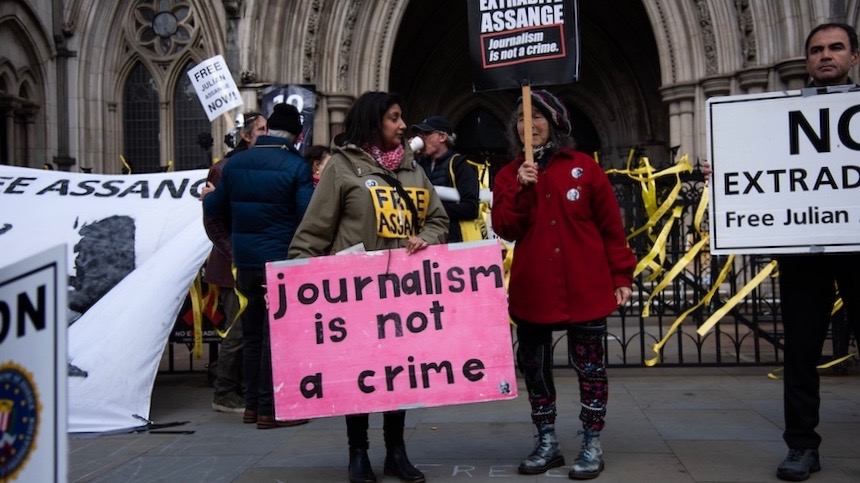A British court has permitted Julian Assange to approach the Supreme Court to appeal his extradition but on limited grounds. The decision by the High Court of Justice in London on Monday, January 24, has certified only one of the several grounds for appeal raised by the defense. This point pertains to the lateness of the diplomatic assurances by the United States.
The defense team will now have 14 days to file for permission to appeal at the Supreme Court based on the high court’s certification. Once the appeal is filed, the Supreme Court will first decide if it will hear it or not. In the meanwhile, Assange will continue to be detained at the high-security Belmarsh prison throughout the appeals process.
Assange’s supporters have received the news with a hint of wariness, mindful of his continued imprisonment without charge. “Make no mistake, we won today in court,” said Assange’s partner Stella Moris, speaking to the media outside the court premises. “But let’s not forget every time we win, as long as this case isn’t dropped, as long as Julian isn’t freed, Julian continues to suffer.”
In its statement released shortly after the decision, the Committee to Protect Journalists (CPJ) stated that it “cautiously welcomes” the high court’s decision. “We are glad that Julian Assange will be allowed to apply to appeal his extradition in the UK’s Supreme Court,” said CPJ deputy executive director Robert Mahoney. “We welcome this decision, this is positive step,” echoed Rebecca Vincent, UK bureau director of Reporters Without Border (RSF).
On December 10, the high court, hearing a US appeal, overruled a January 2021 decision by Judge Vanessa Baraitser of the Westminster Magistrate’s Court to deny the extradition request. Baraitser’s decision was based on concerns regarding the deteriorating effect that prison conditions in the US would have on Assange’s mental health and the risk of him committing suicide if extradition became imminent.
The appellate court in turn accepted the conditional diplomatic assurances made by the US to the UK to avoid special administrative measures (SAMs) during Assange’s detention. The assurances came last year and were made after Judge Baraitser passed her ruling. The high court also stated that it was wrong of Baraitser to pass a decision without seeking these assurances.
Among the several points of law raised by Assange’s defense team for the appeals request, the high court accepted one: “In what circumstances can an appellate court receive assurances from a requesting state which were not before the court of first instance in extradition proceedings.”
Assange’s defense argued that the US assurances came much after Baraitser had made her decision and were not adequately scrutinized by the court. The defense had also previously questioned the trustworthiness of the US assurances, since the US Central Intelligence Agency (CIA) has powers to recommend SAMs for Assange.
SAMs are punitive detention measures, often involving solitary confinement. The defense presented recent exposes revealing the extent of CIA’s hostility towards Assange. The CIA has conducted illegal surveillance on Assange and even made assassination plans against him.
If the appeal reaches the supreme court, the merits of these assurances and their acceptance by the high court are expected to be further scrutinized.





